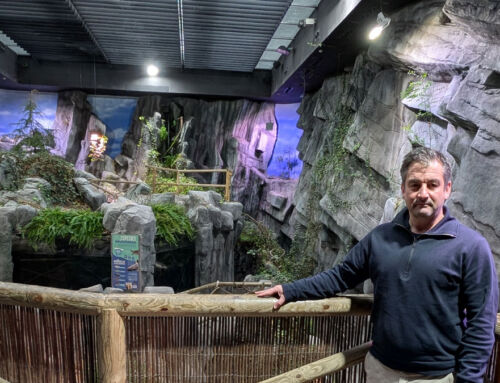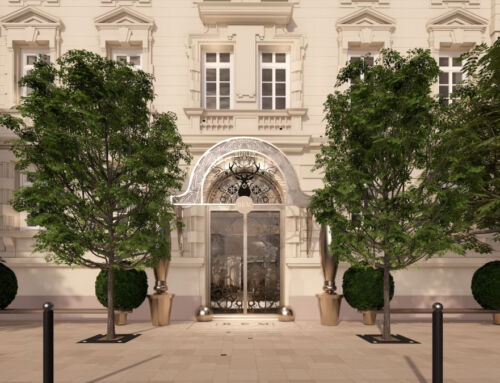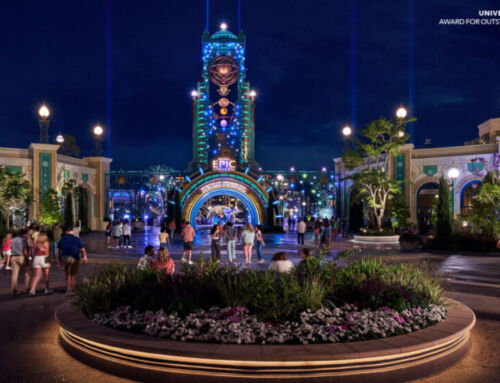Rural tourism emerged in recent decades to connect tourists (and respond to their demand) with the appeal of the quiet life, the mountains, perhaps adventure sports and nature offered by small towns and villages far from the sunny coasts and classic travel circuits. However, a new concept is now emerging in the leisure and tourism sector.
This is agrotourism, which combines agriculture with travel, in what is nothing more than a deepening of the rural tourism model. The Dubai-based architectural firm URB is in no doubt about this and, in its presentation of “the world’s largest eco agritourism destination“, states that “it is a rapidly growing industry that diversifies the agricultural economy of producers (…) by attracting visitors to such areas for the purposes of entertainment, leisure, shopping, and education “. Their architectural project is presented under the name Agri Hub.
Although few details are known, the design of the Agri Hub architectural project shows a large glazed roof, similar to that of a large greenhouse, which extends in sharp curves and creates meanders like a river, over a space partially excavated in the ground. Inside, under this elongated roof, there is a succession of small constructions with large windows, as well as garden areas and other areas with vegetable plots, all integrated at different heights and with steps and staggered surfaces that connect them. According to the architects, Agri Hub will include a “Nature and Heritage Conservation Centre“, an “Agri-tech Institute“, an “Ecotourism Centre”, a health, wellness and recovery centre, restaurants, shopping and entertainment areas under its glass roof.
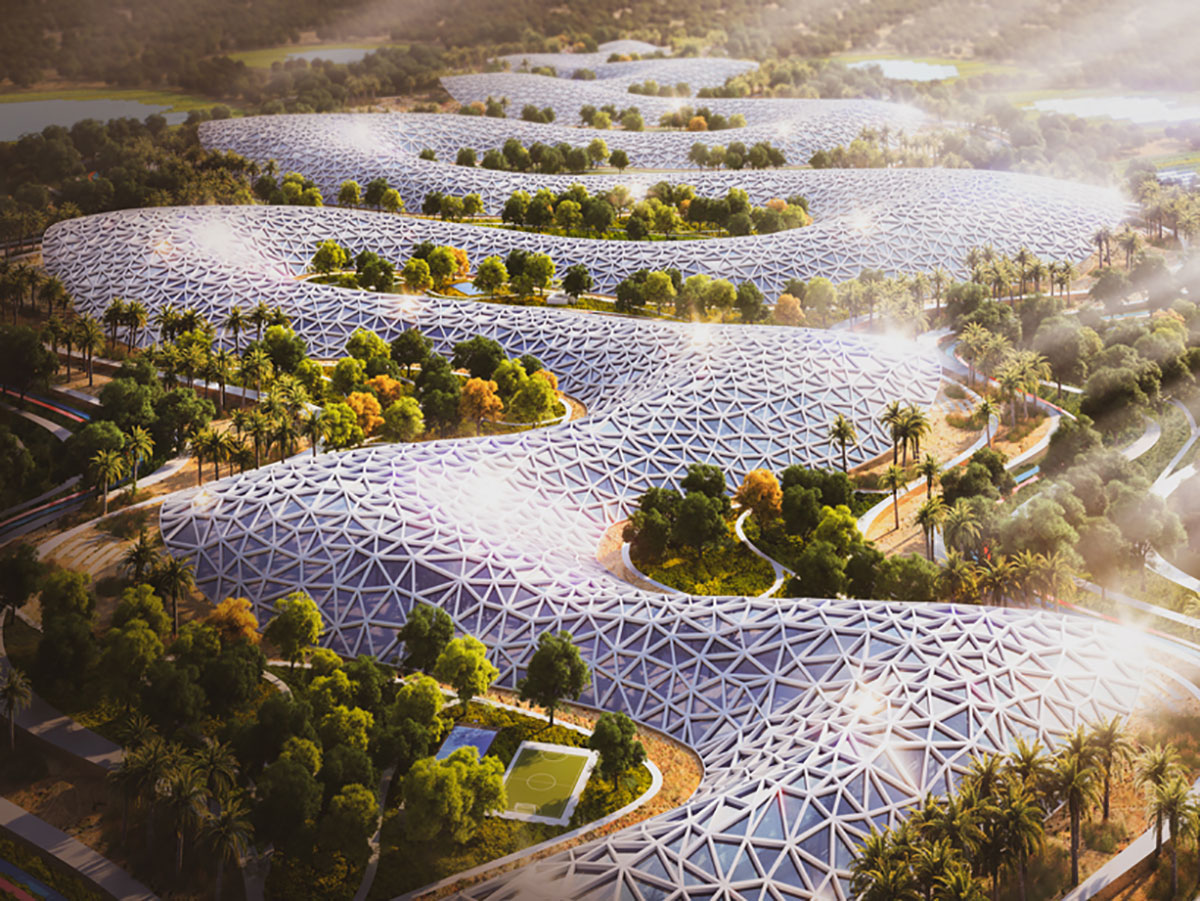
The first, the Conservation Centre, will have as its mission the safeguarding and “sustainable use” of natural heritage, biodiversity and local ecosystems, and their preservation for future generations. The centre will rely on the collaboration and involvement of the traditional communities themselves in the rural areas of Dubai to fulfil this mission. However, the centre will also employ experts, technical specialists and volunteers, and will work in cooperation with the public sector, NGOs and research institutions, and the private sector. In addition to laboratory space, it will also house rooms for educational programmes. According to URB, with this project, local people will become “guardians of their own natural heritage”.
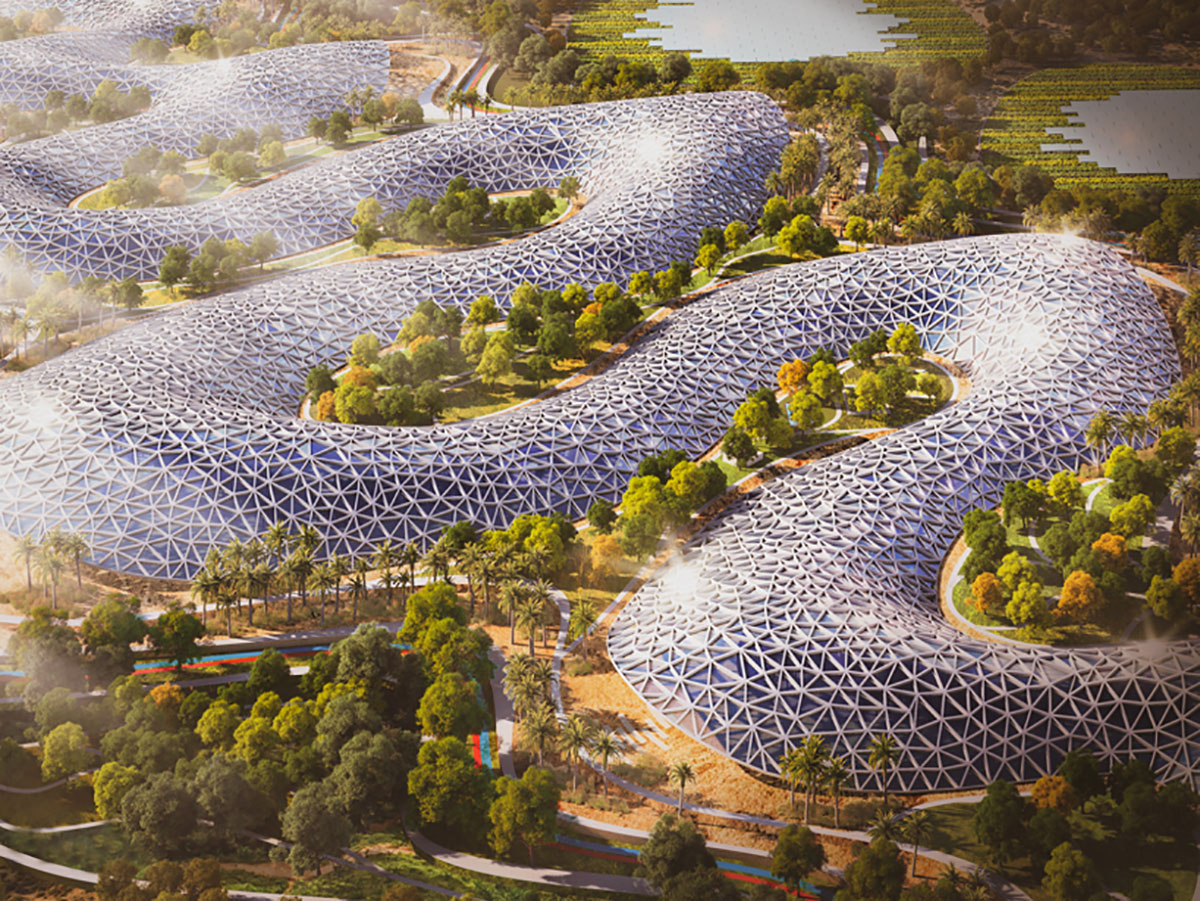
The Agricultural Technology Institute will “will support the agricultural economic development of rural areas in Dubai”. More specifically, the institute will seek collaboration between horticulture, the agri-food industry and knowledge institutes. It will carry out research and create innovations to increase local agricultural production and, at the same time, reduce the use of resources such as water and fossil fuels. Robotics, artificial intelligence, sensor physics, geothermal engineering are some of the new technologies that will be brought together in the institute.
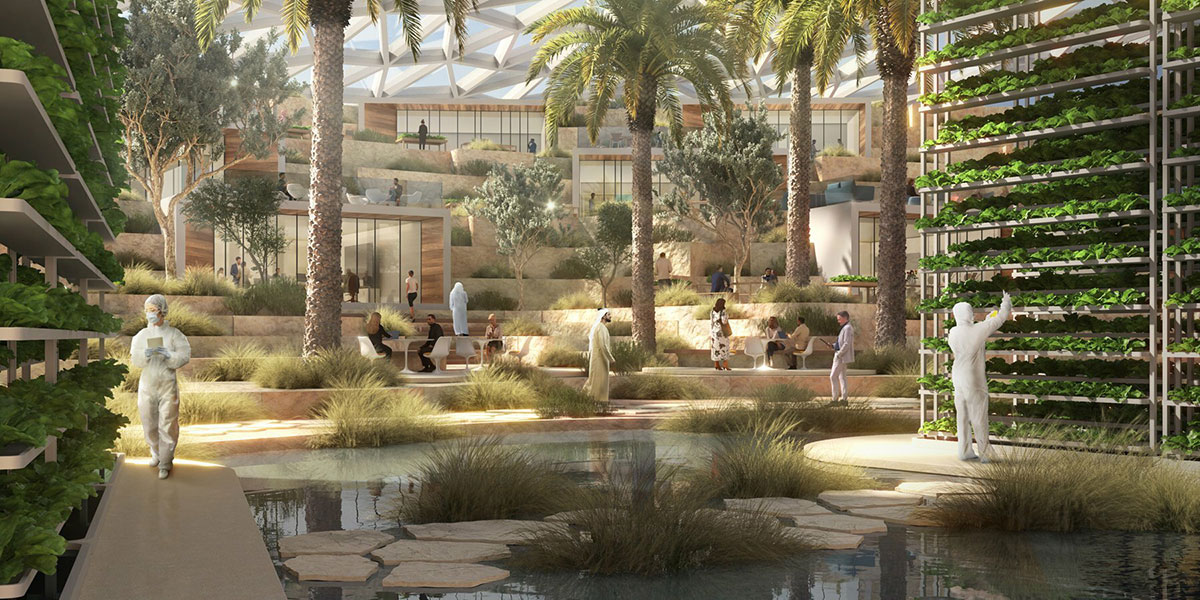
It should be added that Agri Hub will be powered exclusively by renewable energy sources. Solar parks, together with atriums heated by evaporation, as well as the “semi-subterranean” conception of the architectural project, will serve its energy efficiency. The design of the “bioclimatic internal spaces” will offer comfort and well-being to visitors, without losing the feeling of being outdoors. Finally, the agri-tourism complex will be equipped with sensors to monitor its parameters in real time (number of occupants, weather and light conditions, movement, temperature, noise, humidity, etc.), in order to improve operational efficiency as well as safety. Its developers anticipate that the Agri Hub will create more than 10,000 jobs in the agri-tourism sector in Dubai.
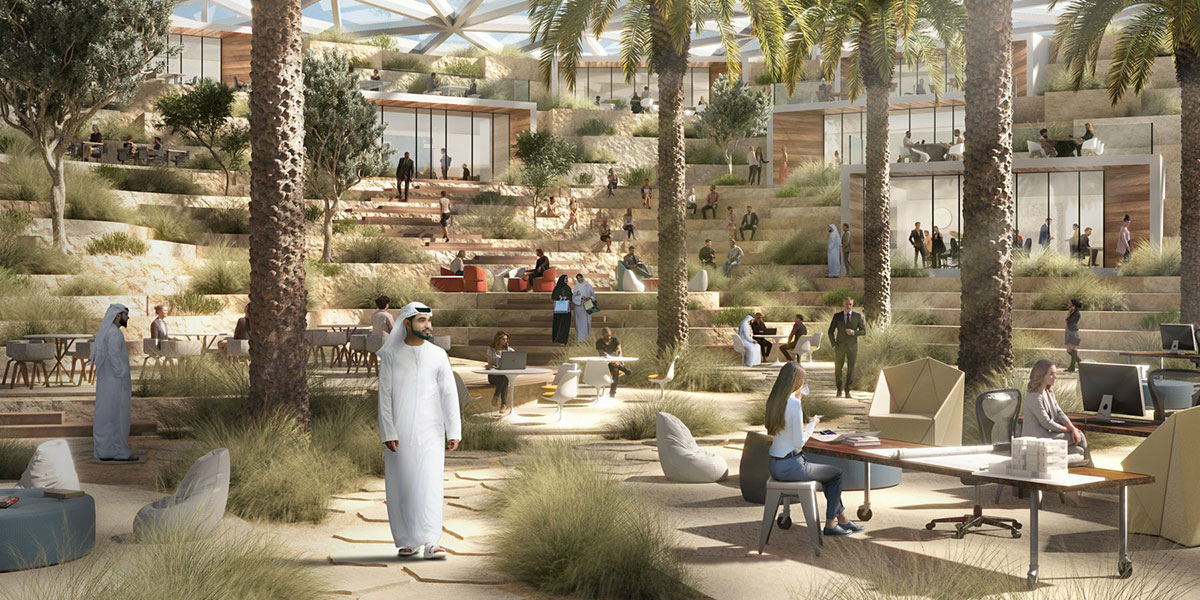
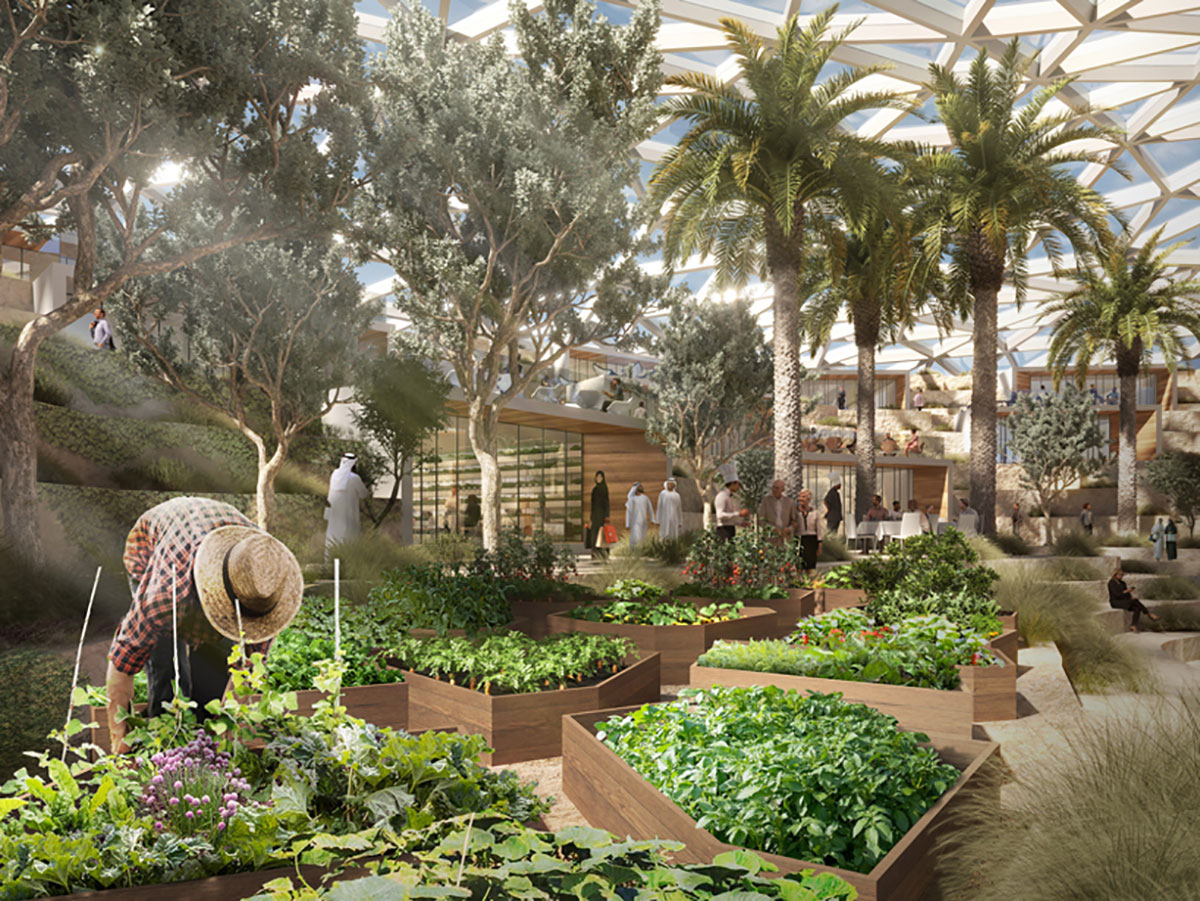
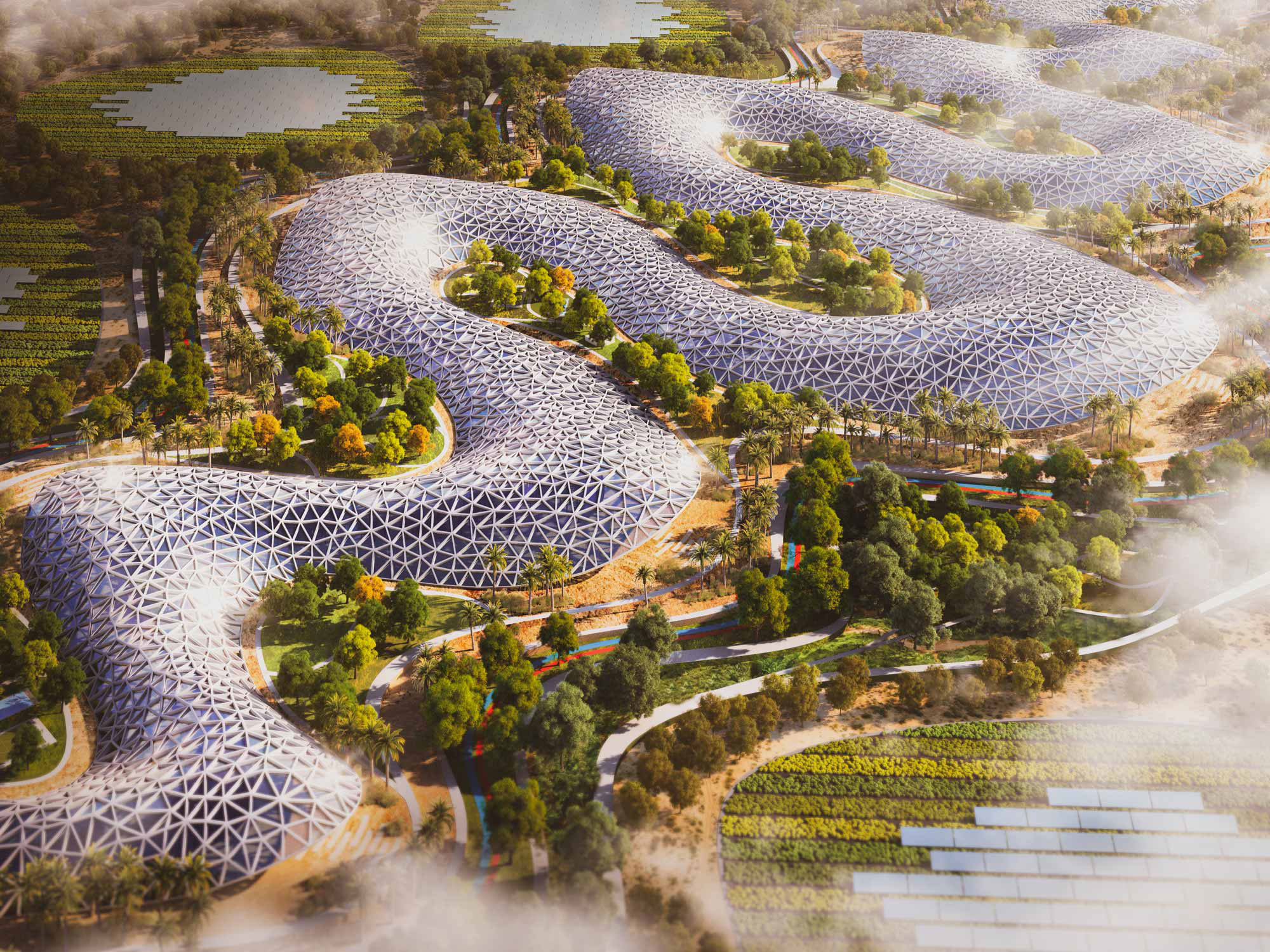
Source and images: URB.



